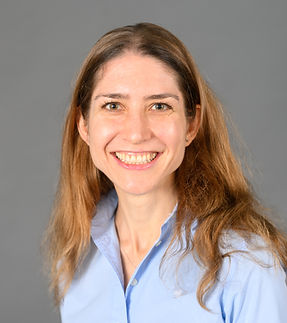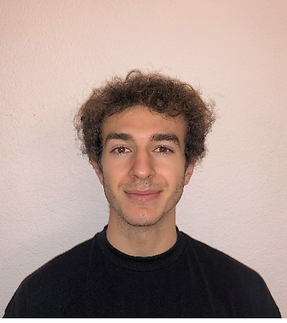
Research
We study the basic biology of cancer cells at the crossroads of immunology and cancer biology.
It is our conviction that groundbreaking clinical advances have their foundation in determining biological questions.
Simplified, leukemia cells are immune cells gone awry. Yet, acute myeloid leukemia (AML) - the most common form of acute leukemia in adults - has not fully benefitted from the immunotherapy revolution. Similarly, sarcoma, the very first cancer targeted by Dr. William Coley, father of the cancer immunotherapy, in his pioneering work in 1891, has yet to reap the benefits of immunotherapy. We have embraced the challenge to tackling those two biologically highly interesting diseases, both of with represent areas of significant unmet clinical need.
Our research seeks to decode the molecular basis of inflammation across the continuum from hematopoietic stem cells through clonal hematopoiesis to AML, with a focus on identifying disease-initiating and leukemia-sustaining inflammatory processes distinct from physiological inflammation. We then leverage this understanding to discover immune-modulating dependencies.
We also investigate the dynamic interplay between cancer cells and their tumor environment, specifically examining the roles of both cell-intrinsic and cell-extrinsic inflammation, thereby informing the development of enhanced treatment strategies.
Additionally, we unravel inflammatory signaling in the context of cancer cell fitness and drug resistance, paving the way for more effective treatments.
Projects
Discovering inflammatory nodes sustaining the leukemic state
We use chemical immune activation combined with genomic screens to discover novel inflammatory nodes. Importantly, we dissect differences between physiological and leukemia maintaining inflammation.

Unraveling the interplay between tumor cell-intrinsic and inflammation
in the tumor environment
By clarifying the interplay between cell-intrinsic and extrinsic inflammatory signals, we aim to elucidate the dynamic crosstalk of immune signals between cancer cells and their surrounding tumor environment. This understanding holds promise for enhancing cancer therapies that target both tumor cells and the tumor environment, for example by guiding T-cell mediated treatment strategies.

Determining the role of inflammation in cancer cell fitness and treatment resistance
Treatment resistance - whether as primary refractoriness or relapse - remains a major clinical challenge that limits long-term therapeutic responses and reduces patient survival.
We are investigating how inflammatory signaling contributes to the development of resistant cancer cell states. To this end, we are pursuing multiple lines of investigation, leveraging omics analyses, including single-cell studies on patient samples collected at primary diagnosis and relapse. We aim to inform strategies that reverse, or ideally prevent, the emergence of treatment resistance.

Exploiting inflammatory signaling in bone and soft tissue sarcoma
Sarcomas are rare but aggressive cancers. Their treatment remains challenging, with limited treatment advances for most sarcoma subtypes in recent decades. Emerging evidence suggests that some sarcoma cells rely on inflammatory signaling for survival. We systematically investigate inflammatory cues in sarcoma cells and their tumor environment to identify immune-modulating targets, thereby guiding the development of therapeutic strategies that leverage inflammatory pathways to improve sarcoma treatment.
Our Team
News
Selected Publications
Inflammatory signaling in the pathogenesis of acute myeloid leukemia
Baumann AM, Ellegast JM, Hemasphere. August 2025
Miller PG, Sperling AS, Mayerhofer C, McConkey ME, Ellegast JM, Da Silva C, Cohen DN, Wang C, Sharda A, Yan N, Saha S, Schluter C, Schechter I, Słabicki M, Sandoval B, Kahn J, Boettcher S, Gibson CJ, Scadden DT, Stegmaier K, Bhatt S, Lindsley RC, Ebert BL. Blood. December 2023
Lu DY, Ellegast JM, Ross KN, Malone CF, Lin S, Mabe NW, Dharia NV, Meyer A, Conway A, Su AH, Selich-Anderson J, Taslim C, Byrum AK, Seong BKA, Adane B, Gray NS, Rivera MN, Lessnick SL, Stegmaier K. Nature Cell Biology. Februar 2023
Unleashing cell-intrinsic inflammation as a strategy to kill AML blasts
Ellegast JM, Alexe G, Hamze A, Lin S, Uckelmann HJ, Rauch PJ, Pimkin M, Ross LS, Dharia NV, Robichaud AL, Conway AS, Khalid D, Perry JA, Wunderlich M, Benajiba L, Pikman Y, Nabet B, Gray NS, Orkin SH, Stegmaier K. Unleashing Cell-Intrinsic Inflammation as a Strategy to Kill AML Blasts. Cancer Discovery July 2022
A distinct core regulatory module enforces oncogene expression in KMT2A-rearranged leukemia
Harada T, Heshmati Y, Kalfon J, Perez MW, Xavier Ferrucio J, Ewers J, Hubbell Engler B, Kossenkov A, Ellegast JM, Yi JS, Bowker A, Zhu Q, Eagle K, Liu T, Kai Y, Dempster JM, Kugener G, Wickramasinghe J, Herbert ZT, Li CH, Vrabič Koren J, Weinstock DM, Paralkar VR, Nabet B, Lin CY, Dharia NV, Stegmaier K, Orkin SH, Pimkin M. Genes Development. March 2022

Get in touch
We are always eager to connect with science enthusiasts!


















